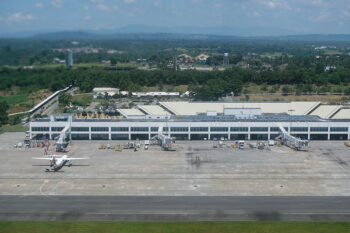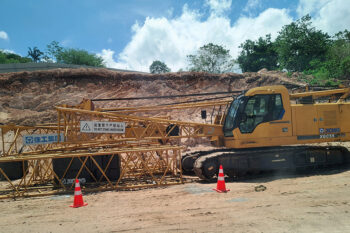MELBOURNE, Australia (MindaNews / 1 June) – Will federalism actually lead to economic progress for regions outside of “Imperial Manila”? A resounding “Yes!” is the hard sell used by barnstorming proponents of federalism. And it is so easy to get caught up with all the excitement surrounding this movement given President Rodrigo Duterte’s endorsement behind it. But there is still room for some healthy scepticism.
For all its noble intentions to improve political leadership in the country, the imposition of term limits for local officials has actually given rise to three major constraints on socio-economic development planning that currently beset local leaders.
First, the three important local planning bodies, namely the local chief executive, the local development council, and the sangguinian, cannot establish administrative continuity within the local government structure because of the frequent changes in political leadership. The corresponding administration turn-over rate has made any form of long term development planning practically impossible.
Second, local leaders have acquired the proclivity for quick-gestation projects. Strategic development formulation is grossly limited by a benefits-now paradigm such that undertakings that require an extended time frame, even if it will produce more socio-economic benefits for the community, almost always never see the light of day.
Third, local officials very often yield to populist demands and avoid difficult but necessary reforms. And in conjunction with the inclination to come up with development ideas with instantaneous effect, these very same ideas are often dictated by the need to be re-elected.
In sum, the local leadership paradigm has selfishly linked the mandate for development to the political burden of pleasing loyal followers. This electoral arrangement has grown to the extent that urgent and critical reforms that will benefit the public at large are ignored if they will cause discomfort and displeasure to majority of voters.
Furthermore, the political reality in our country illustrates that term limits have not in fact curbed the appetite of politicians to acquire political power. Indeed, by employing a revolving door scheme amongst family members, politicians have not only found a way to beat the term limit but have also expanded the reach of their political power within government. By some ironic twist of fate, they have also arrived at a legal and democratic way to firmly entrenched their families in local politics.
Sadly, political dynasties have made local governance a family enterprise. Father is governor; mother is congresswoman; brother is mayor; son is councilor; niece is SK; cousin is barangay captain; kinakapatid is vice-mayor, and so forth. This phenomenon is summed up perfectly by respected Mindanao civil society activist, Guiamel Alim, as “clan-inclusive government.”
The fact is political elites in the Philippines are so entrenched they have become essentially insulated from political competition. This has led to the enculturation of a myopic and parochial governance mindset.
Even worse, as local communities continue to suffer inept and corrupt dynastic leaders, those who can, and are willing to, push for reforms but do not have the inherited political advantage are effectively denied the right to run for public office because of the monarchical nature of local government. Indeed, Filipinos who are more qualified, passionate and patriotic, including many from the youth ranks, are deprived of the opportunity to establish clean and effective local governance.
This situation has become a bane to local communities clamouring for socioeconomic progress. Numerous studies have shown that standards of living, lower human development, and higher levels of deprivation and inequality persist in the districts governed by local leaders who are members of a political dynasty. A more alarming development is that the ‘fattest’ dynasties—those with the most family members in office—are ensconced in the poorest parts of the country.
It is utterly obvious that federalization will not actually bring local development with the quality of local leadership still at an untenable state. It is certainly justified to be concerned that federalizing with political dynasties still comfortably lording it over local communities would make socio-economic development more inequitable than it currently stands.
Indeed, Mindanawons most of all should be wary given their firsthand experience with the most important realization in the discourse on the Bangsamoro Basic Law; that the Autonomous Region in Muslim Mindanao is a failed experiment. The lesson being—increasing the autonomy of local levels of government ultimately amounts to nothing if local leaders are incompetent and incapable to properly utilize the expanded powers and resources.
But the most ominous sign of all is the conclusion drawn from the International Conference on Federalism and Multiculturalism organized by the Center for Local and Regional Governance that, “Amidst the great noise of charter change proponents, no one has actually explained to the local officials the ‘economics of federalism’ despite of it being the most contentious issue.”
Hence, it would serve the federation cause better if President Duterte rally all his political capital behind reform measures aimed at improving the quality of local leadership in the country. Legislations regulating local dynasties, establishing a genuine political party system, and ensuring transparency and accountability in local government are just some of the laws which can drastically improve the governance mindset of our local public officials.
He may be the patriarch of a local dynastic family himself but there can be no doubt he is presently the only national leader qualified to undertake this difficult task. For he is, in fact, the living proof that effective leadership is an indispensable requirement of local development.
[MindaViews is the opinion section of MindaNews. Atty. Michael Henry Ll. Yusingco is a practicing lawyer. He is presently completing a Masters of Law and Development in Melbourne Law School. He recently published a book entitled, Rethinking the Bangsamoro Perspective.]







